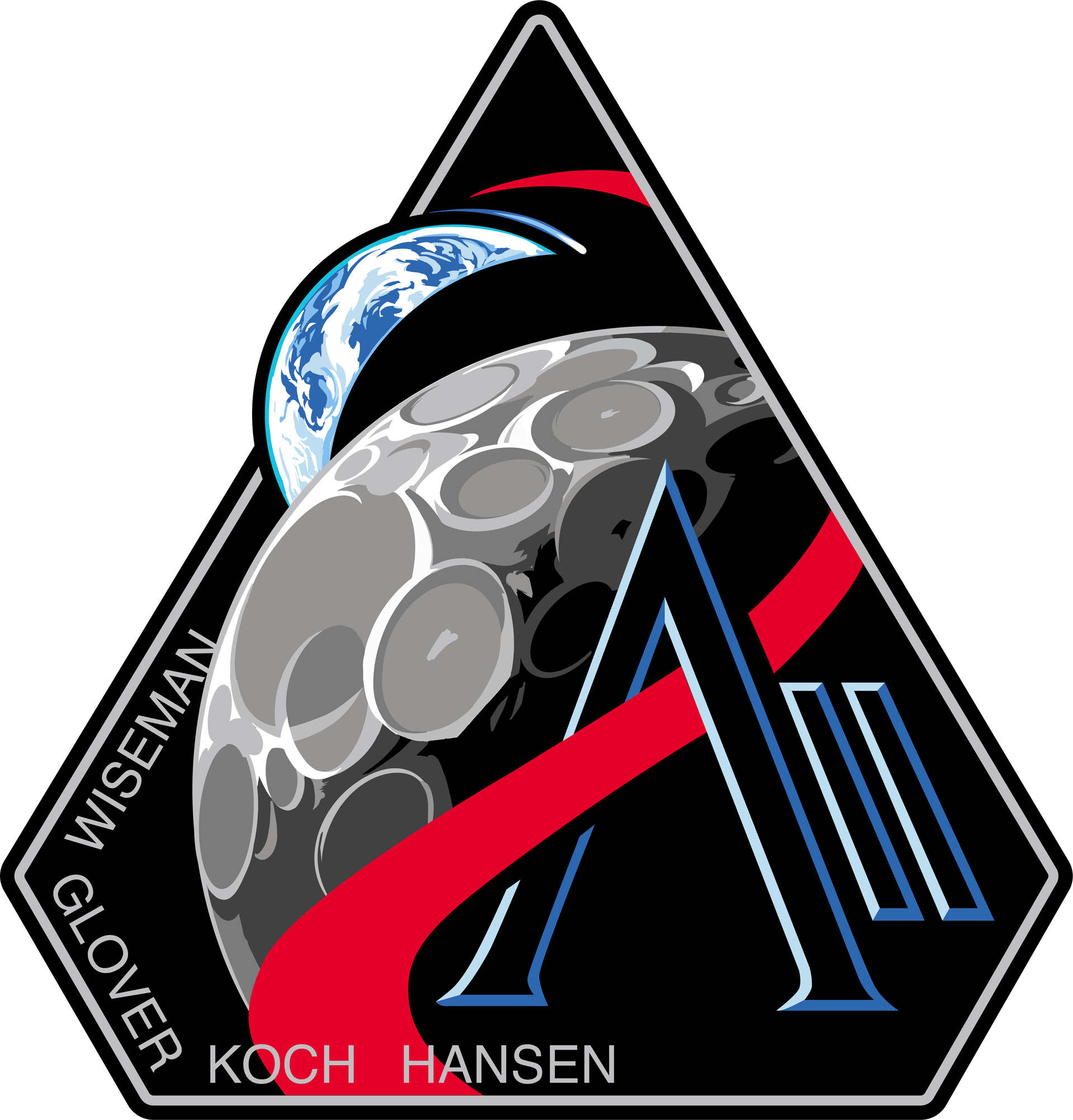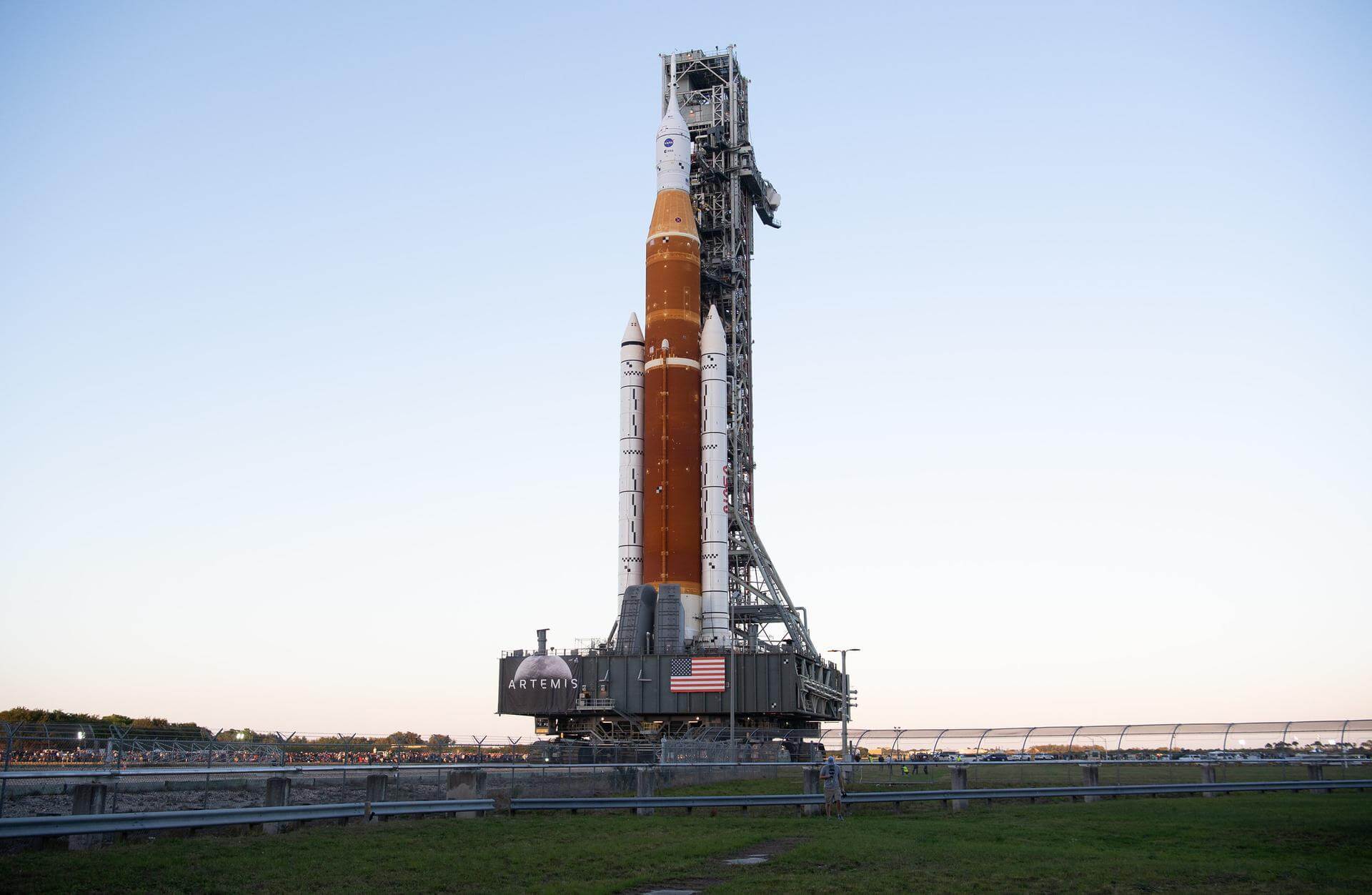Kennedy Space Center Launch Schedule
Stay updated on Kennedy Space Center's rocket launches with our real-time schedule. You can see 24 planned space missions on our website. Watch the live stream of any Kennedy Space Center rocket launch happening today.
Launch Service Provider
Vehicle
Spacecraft Stage
Orion
Crew

Gregory R. Wiseman

Victor J. Glover

Jeremy Hansen

Christina Koch
Mission
Artemis II
Mission Type
Human Exploration
Destination
Lunar Orbit
Artemis II is the first crewed mission as part of the Artemis program. Artemis II will send a crew of 4 - 3 Americans and 1 Canadian around the moon and return them back to Earth. The mission will test the core systems of NASA's Orion spacecraft including the critical life support system, among other systems which could not be tested during Artemis I due to the lack of crew onboard.
Last Update: Delayed to NET April due to upper stage helium leak issue.
🔔 Set up an email alert for upcoming launches
Get a weekly email containing all launches scheduled for the coming week.
Upcoming Kennedy Space Center Launches
TBD
Jun 2026
The ViaSat-3 is a series of three Ka-band satellites is expected to provide vastly superior capabilities in terms of service speed and flexibility for a satellite platform. Each ViaSat-3 class satellite is expected to deliver more than 1-Terabit per second of network capacity, and to leverage high levels of flexibility to dynamically direct capacity to where customers are located.
Last Update: NET Q2 on Falcon Heavy.
TBD
Jul 2026
Demonstration flight of the Astrobotic Griffin lander and its engines, initially contracted for the cancelled NASA VIPER (Volatiles Investigating Polar Exploration Rover) mission. The vacated payload spot will now host the FLIP (FLEX Lunar Innovation Platform) lunar rover from Astrolab.
Last Update: NET July 2026
TBD
Sep 2026
The Nancy Grace Roman Space Telescope is a NASA infrared space telescope with a 2.4 m (7.9 ft) wide field of view primary mirror and two scientific instruments. The Wide-Field Instrument (WFI) is a 300.8-megapixel multi-band visible and near-infrared camera, providing a sharpness of images comparable to that achieved by the Hubble Space Telescope over a 0.28 square degree field of view, 100 times larger than imaging cameras on the Hubble. The Coronagraphic Instrument (CGI) is a high-contrast, small field of view camera and spectrometer covering visible and near-infrared wavelengths using novel starlight-suppression technology. Roman objectives include a search for extra-solar planets using gravitational microlensing, and probing the expansion history of the Universe and the growth of cosmic structure, with the goal of measuring the effects of dark energy, the consistency of general relativity, and the curvature of spacetime.
Last Update: NET September 28.
Classified payload for the United States Space Force
Updated: Apr 12, 11:33pm UTC
Classified payload for the United States Space Force
Updated: Apr 12, 11:33pm UTC
TBD
2026
Third Astrobotic lunar mission, details TBA.
Updated: Apr 12, 11:33pm UTC
First crewed mission to the Haven-1 commercial space station.
Last Update: NET early 2027.
TBD
Jun 2027
Last Update: NET mid-2027.
TBD
Jun 2027
Superbird-9 is a high throughput communication satellite. It is designed to deliver broadcast and broadband missions in Ku band primarily over Japan and Eastern Asia, in response to mobility and broadband demands.
Updated: Apr 12, 11:33pm UTC
Classified payload for the US Space Force.
Last Update: Launch will be on Falcon Heavy.
TBD
Jun 2027
Twelfth Wideband Global SATCOM (WGS) encrypted military communication satellite
Last Update: Launch will be on Falcon Heavy.
Classified payload for the US Space Force.
Last Update: Launch will be on Falcon Heavy.
Classified payload for the US National Reconnaissance Office
Last Update: Launch will be on Falcon Heavy.
TBD
2027
The Power and Propulsion Element (PPE) and Habitation and Logistics Outpost (HALO) are the foundational elements of NASA's lunar-orbiting space station "Gateway". The PPE is a 60-kilowatt class solar electric propulsion spacecraft that also will provide power, high-speed communications, attitude control and the capability to move the Gateway to different lunar orbits. The HALO is the pressurized living quarters where astronauts who visit the Gateway, often on their way to the Moon, will work. It will provide command and control and serve as the docking hub for the outpost. HALO will support science investigations, distribute power, provide communications for visiting vehicles and lunar surface expeditions, and supplement the life support systems aboard Orion, NASA’s spacecraft that will deliver Artemis astronauts to the Gateway.
Last Update: NET 2027
Dragonfly is NASA's 4th New Frontiers program mission that will send a robotic rotorcraft to fly within the atmosphere of Saturn's moon Titan to sample materials and determine surface composition in different geologic settings, advancing humanity's search for the building blocks of life. The craft is a large quadcopter with double rotors with mass of about 875 kg, featuring rotors of 1.35 m in diameter. It can fly through several kilometers within an hour and will perform 1 flight per Titan day (~16 Earth days). During the planned 3.3-year mission, Dragonfly is expected to cover distance up to several hundred km. Dragonfly will use a Multi-Mission Radioisotope Thermoelectric Generator (MMRTG) to power its instruments. The planned science instrument suite is: * DragonCam: Camera Suite * DrACO: Drill for Acquisition of Complex Organics * DraMS: Mass Spectrometer * DraGNS: Gamma-ray and Neutron Spectrometer * DraGMet: Geophysics and Meteorology
Updated: Nov 27, 11:30am UTC
TBD
Sep 2028
Updated: Apr 16, 10:45am UTC
TBD
Sep 2029
Updated: Jan 3, 8:05pm UTC
Private space station developed by a joint venture between Voyager Space and Airbus.
Last Update: NET 2029
Classified US Space Force mission
Last Update: Updated launch vehicle configuration.
Classified US Space Force mission
Last Update: Updated launch vehicle configuration.
Classified payload for the US National Reconnaissance Office
Last Update: Updated launch vehicle configuration.
TBD
Sep 2030
Updated: Jan 3, 8:05pm UTC
TBD
Sep 2031
Updated: Jan 3, 8:05pm UTC




